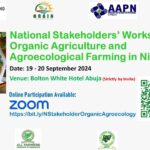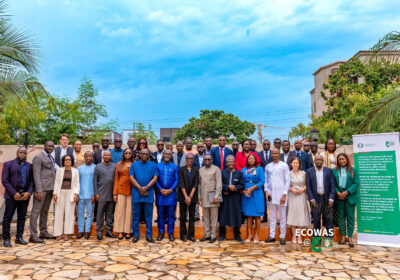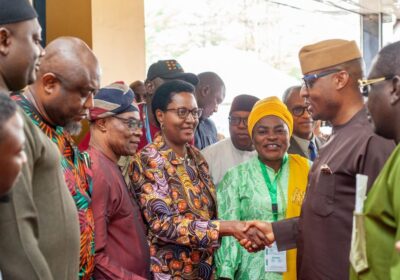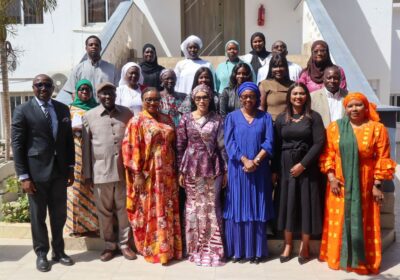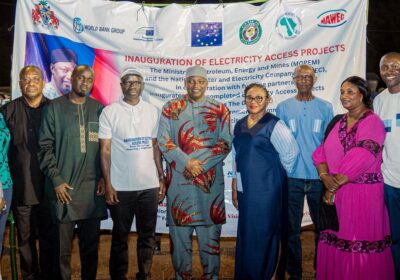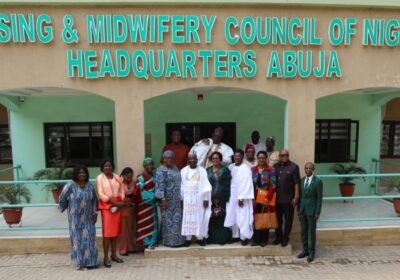FOOD SECURITY: GROUP CALL FOR NATIONAL STRATEGY AND STANDARD ON AGRO-ECOLOGY.
By Raymond Enoch
In a bid to promote national conversation, stimulate policy development to support Organic and Agro-Ecological Farming in Nigeria, Alliance for Action on Pesticide in Nigeria ( AAPN), Action Aid Nigeria ( AAN), the Organic and Agro ecology Initiative ( ORAIN) and Health of Mother Earth Foundation (HOMEF) ) with support from Henrrich Boell Stiftung, today organized a workshop on Organic Agriculture and Agro-Ecological Farming in Nigeria at Bolton White Hotel Abuja, the Federal Capital (FCT).
The objectives of the workshop seeks to address critical issues facing the Agricultural Sector in Nigeria through the promotion of sustainable Agricultural practices and policies that enhance food security and environmental health through Organic and Agroecology practices.
Speaking on “Updates on organicAgriculture and Agroecological Farming in Nigeria” at the event, the lead presenter Prof. Olugbenga O. AdeOluwa, Department of Soil Resources Management, University of Ibadan said that despite many opportunities of Organic Agriculture, Nigeria is still very low on utilization of such advantage.
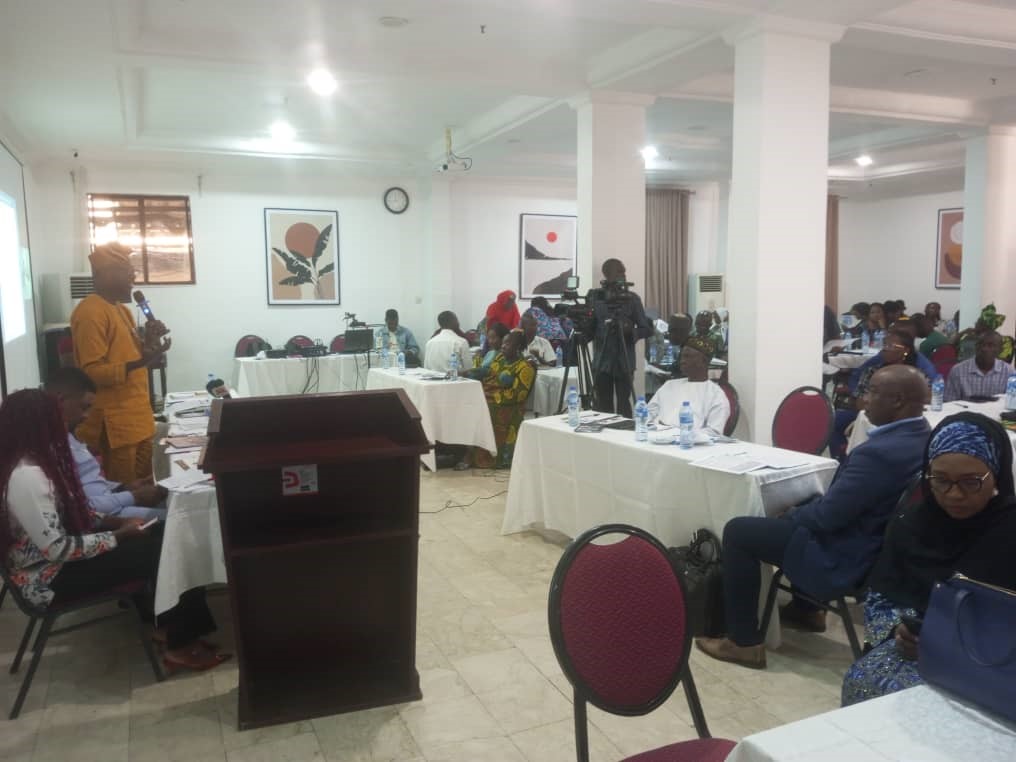
According to him “ poor understanding of organic Agriculture and agro ecology could be the reason for their poor development in Nigeria compared to leading countries in Africa” , noting that benefits outweighs any disadvantages.
Prof. Olugbenga further said that organic Agricultural practices leads to thye improvement of the health of soil, ensure environmental sustainability as well as assures food safety with less or no risk.
In his presentation, the project manager, Sustainable Nigeria at the HBS Nigeria Mr .Ikenna Donald Ofoegbu said that Agriculture and food security in Nigeria face significant challenges, exacerbated by a combination of socio-economic factors, cultural norms, climate change, wrong farm practices, and ongoing violent conflicts, with food inflation over 40.9%, and farmers spending huge cost on imported farm inputs such as seedlings, pesticides and fertilizers, and local plant and seed varies going extinct due to poor farm practices like monoculture, heavy dependence on toxic agrochemicals and now genetically modified organism (GMO) for food, the country’s nutrition burden and hunger poverty will continue to increase.
The Director of Agriculture and Rural Development ,ECOWAS Commission , Dr KOFFI Emmanuel Gle represented by Nwachukwu Gift Ezinne hailed the unwavering commitment of the organizers of the workshop towards promoting sustainable agriculture in West Africa.
According to Dr Koffi Emmanuel Gle, “We must prioritize the adoption of agro-ecological practices, support smallholder farmers, and promote organic agriculture. We owe it to ourselves, our communities, and future generations to ensure a sustainable and food-secure West Africa.”
He said that the Directorate of Agriculture and Rural Development of the ECOWAS Commission is actively promoting organic and agroecological farming in Nigeria through various initiatives. Adding that one of such initiatives is the ECOWAS Agroecology and Climate Smart Agriculture initiatives, which supports sustainable farming practices and helps farmers adapt to climate change, adding that the program is part of ECOWAS’s broader efforts to enhance food security and competitiveness in the West African region.
The Head of Agriculture and Food Security of the Action Aid Nigeria ( AAN) Mr Azubike Nwokoye who also spoke at the event said that AAN is a pivotal organization in Nigeria that is committed to promoting Agroecolofical practices and is implementing organic Agricultural services to increase the opportunities that are abound in the sector.
Highlights of the event was the presentation of several case studies from different speakers from the finance institutions and the private sector, each demonstrating how organic Agricultural practices and Agroecology would better serve the food security needs of Nigeria.




